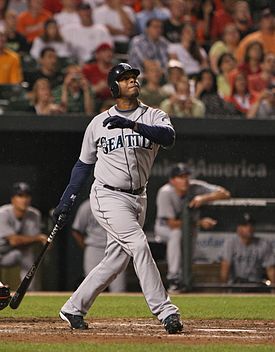 A couple of stories in the news about rats and mermaids reminded me of the fact that our world is largely a landscape of self-created illusion. An imaginary realm where reality is a dream and our fantasies reality. Another couple of incidents that happened to me recently furthered my thoughts in this direction. One involved my older step-sister and another some friends of mine.
A couple of stories in the news about rats and mermaids reminded me of the fact that our world is largely a landscape of self-created illusion. An imaginary realm where reality is a dream and our fantasies reality. Another couple of incidents that happened to me recently furthered my thoughts in this direction. One involved my older step-sister and another some friends of mine.
We live in this amazing world of sensation and our minds are capable of such imagining that it is often difficult to separate those things that we want to be true, that we ideologically believe, from those things that are not actually true at all. One only has to listen to a friend tell the story of an incident that happened to the both of you years before to see this is true. Their version is generally wildly different from yours. Why does this happen? Why do we cling to phantoms when reality stares us in the face?
I’d like to relate my own recent incidents as an example of why we live in this fantasy realm instead of reality. My step-sister is passionate about the topic of Israel and not long after becoming my friend on Facebook I grew tired of her posts on the subjects and removed her from my friends list. Years went by. Recently at my younger half-sister’s wedding I had the chance to speak with my older step-sister (I have five sisters). My older step-sister rather jokingly told me she wouldn’t invite me to any more Tea Party events. At first I had no idea what she was talking about but then it occurred to me the last event she knew before I removed her from my friend’s list was apparently an invitation to a Tea Party rally.
This is instructive. The invitation had nothing to do with why I removed her from my friend’s list but it was, from her perspective, the inciting incident. She sent me the invitation and I promptly removed her from my list. It’s actually quite logical although false. This is something that happens to all of us frequently. Our view of anyone else’s world ends the moment we are no longer communicating with them. We say our goodbyes and they are happy. An hour later we meet again and they are unhappy. What did I do? Are you mad at me? It, of course, has nothing to do with us but involved some other incidents that occurred in the meantime.
Someone gets overly upset at us for some minor transgression. It’s almost certain that they are mad about something else going on in their lives and took it out on us. Yet we feel as if we caused the wrath. That it is our fault somehow. We our the center of our world. Everything that happens, happens to us. This is false of course but we feel it, we think it. When lightning strikes my house it must because of me. I’ve done something, something to anger … who? Who could bring down lightning? Who could cause my hard-drive to crash? God, that’s who. It’s perfectly logical … and false.
The other incident that happened involved, of all things, boy scouts and astronauts! I was enjoying a wonderful meal thanks to my good friend who invited many of us to his twenty-fifth wedding anniversary. The son of another friends is a boy scout and we happened to be talking about space. Yet another friend mentioned that all astronauts were boy scouts. My friend’s son, I’m ashamed to say before me, immediately jumped in with the comment, “Except the girls”.
The man who made the original statement quickly said that he meant only the early, lunar astronauts. I smiled and said that another group of astronauts were not boy scouts. Cosmonauts. The man quickly asserted that the Russians actually had a very strong boy scout program. I was somewhat skeptical but he seemed absolutely sure. The mother of my friend then grabbed her cell phone and told me with certainty that Yuri Gagarin was a member of the Russian version of the boy scouts. At this point I capitulated, after all, this was from the internet!
That night I looked it all up. I don’t want to get into details but the Russians outlawed scouting in 1922 and Yuri Gagarin from the ages of thirteen to fifteen was living in a mud hut the Nazi soldiers living in his house let his family build out back, not scouting in the non-existent Russian scout program. Many of the lunar astronauts were boy scouts, but hardly all.
Why did my friends say what they did? This is another major clue as to why we live in this world of delusion. We make a statement that we want to be true, an ideology that fits with our view of the world. Someone postulates reasonable arguments as to the veracity of this world view and we defend our position. If we admit that one thing isn’t correct perhaps our entire view will fall apart. This is extremely common, extremely normal, and I do not hesitate to tell you that I’m guilty of it as well. The more pointed the question the more strident our defense. The war of the talking heads has begun. Rationality has lost.
My goal here isn’t to humiliate my friends. I’ve been guilty of the similar delusions many times. My goal is to urge people to look past their self-centered, ideological view of the world. Look at things with a critical eye and take nothing for absolute truth, whether it be mermaids, rats on Mars, or god.
Tom Liberman
Sword and Sorcery fantasy with a Libertarian Twist
Current Release: The Sword of Water (300+ pages of swashbuckling fun for $2.99)
Next Release: The Spear of the Hunt
 I wrote the other day about a
I wrote the other day about a  There was an
There was an  We want to get the call right and we want people to play with integrity. We say these things but do we mean them? In a Major League Baseball game between Seattle and Texas on Friday night, getting the call right and sportsmanship became an issue. You can watch the
We want to get the call right and we want people to play with integrity. We say these things but do we mean them? In a Major League Baseball game between Seattle and Texas on Friday night, getting the call right and sportsmanship became an issue. You can watch the  Corporate tax status is in the news lately with Apple but I just read another
Corporate tax status is in the news lately with Apple but I just read another  I don’t think most of my friends will be much interested in the recent USGA
I don’t think most of my friends will be much interested in the recent USGA  Ok, so it’s a few years from Superbowl LIX but I’m already annoyed. We’re only at Superbowl XLVIII which means we have LIX minus XLVIII divided by L, carry the V and … merciful Flying Spaghetti Monster someone please kill the roman numerals. I mean really, Superbowl XLVIII?! What sort of madness is this? How did the Roman Republic ever last long enough to become the Roman Empire? Roman frigging numerals?!
Ok, so it’s a few years from Superbowl LIX but I’m already annoyed. We’re only at Superbowl XLVIII which means we have LIX minus XLVIII divided by L, carry the V and … merciful Flying Spaghetti Monster someone please kill the roman numerals. I mean really, Superbowl XLVIII?! What sort of madness is this? How did the Roman Republic ever last long enough to become the Roman Empire? Roman frigging numerals?! A recent
A recent  The National Transportation Safety Board
The National Transportation Safety Board  The rounding up and penning of wild horses in western states has gotten both a great deal of national news and personal Facebook postings of late. One of my good friends is an animal activist from Colorado and I’ve been reading about this activity, thanks to her links, for several years now. It seems to be finally getting some national attention as I spotted a
The rounding up and penning of wild horses in western states has gotten both a great deal of national news and personal Facebook postings of late. One of my good friends is an animal activist from Colorado and I’ve been reading about this activity, thanks to her links, for several years now. It seems to be finally getting some national attention as I spotted a  An
An  Former Secretary of Education William Bennett is out promoting a new book and in a
Former Secretary of Education William Bennett is out promoting a new book and in a  Just the other day I realized that there is an interesting societal dynamic at the gym involving shared property. I’m going to examine that idea and how it applies to the modern world.
Just the other day I realized that there is an interesting societal dynamic at the gym involving shared property. I’m going to examine that idea and how it applies to the modern world.
